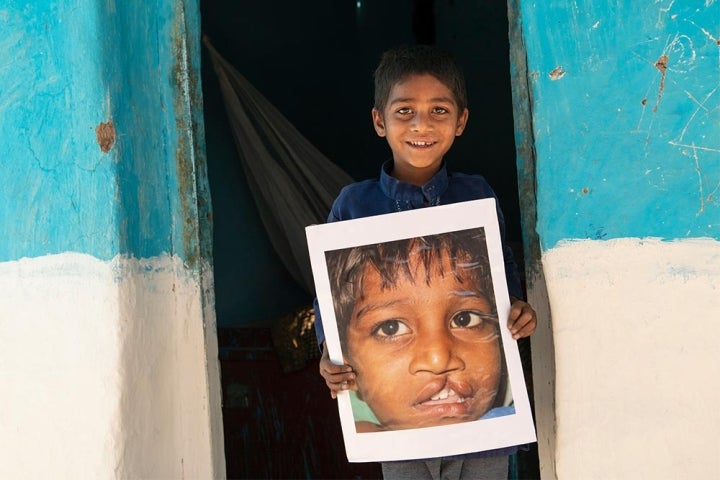Cleft Lip and/or Palate Surgery
Smile Train-supported cleft surgeries are life-changing and the transformation is immediately visible.

Though it is never too late for cleft surgery, most experts agree that cleft lips should ideally be treated within the first three to six months after birth and cleft palates between nine and 12 months. Depending on the severity of their cleft and other factors, a child could undergo multiple surgeries during their first 20 years.
Essential Information About Cleft Surgery
Watch this video for essential information about safety and quality measures before, during, and immediately after cleft surgery. This version is in English; please contact Smile Train for availability in other languages.
Surgery Steps
Before
Before surgery, it is important for parents and caregivers to carefully listen to any instructions given by the medical team. This may include instructions about when to bring the child for admission, which health parameters to observe and report, when the child is permitted to eat or drink prior to surgery, important information about what to expect, and other information that will help ensure your child has the best outcome.
During
During surgery, the child will be given a general anesthetic so that they will be asleep and not feel any pain. The length of the procedure will depend on the type of surgery, the child, and the treatment team. When the surgery is completed, your child will be monitored in the Post-Anesthetic Care Unit (PACU) before being transferred to the recovery ward.
After
After surgery, the doctors and nurses may provide you with special information about caring for the surgical area and when and how to feed your child. The surgical team may ask caregivers to gently clean around the stitches with a soft cotton swab and water twice a day to keep the wound clean and remove any clots or crusts. Caregivers may also be instructed to apply ointment to the lip twice a day after cleaning. However, in some cases, no cleaning or wound care is required at all. Most surgeries will heal without difficulty, but consult your cleft care team if your child seems to have any discomfort or complications following the surgery.
